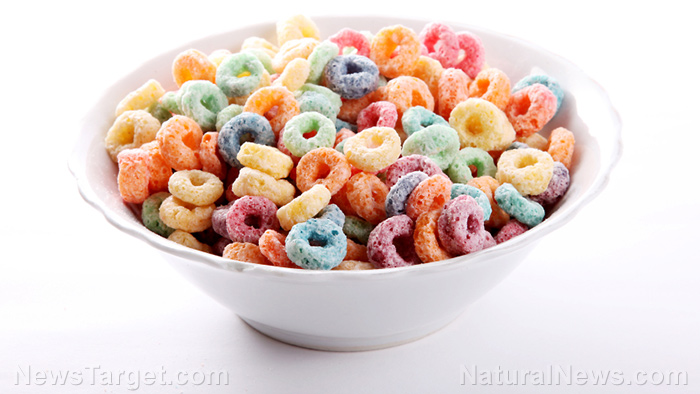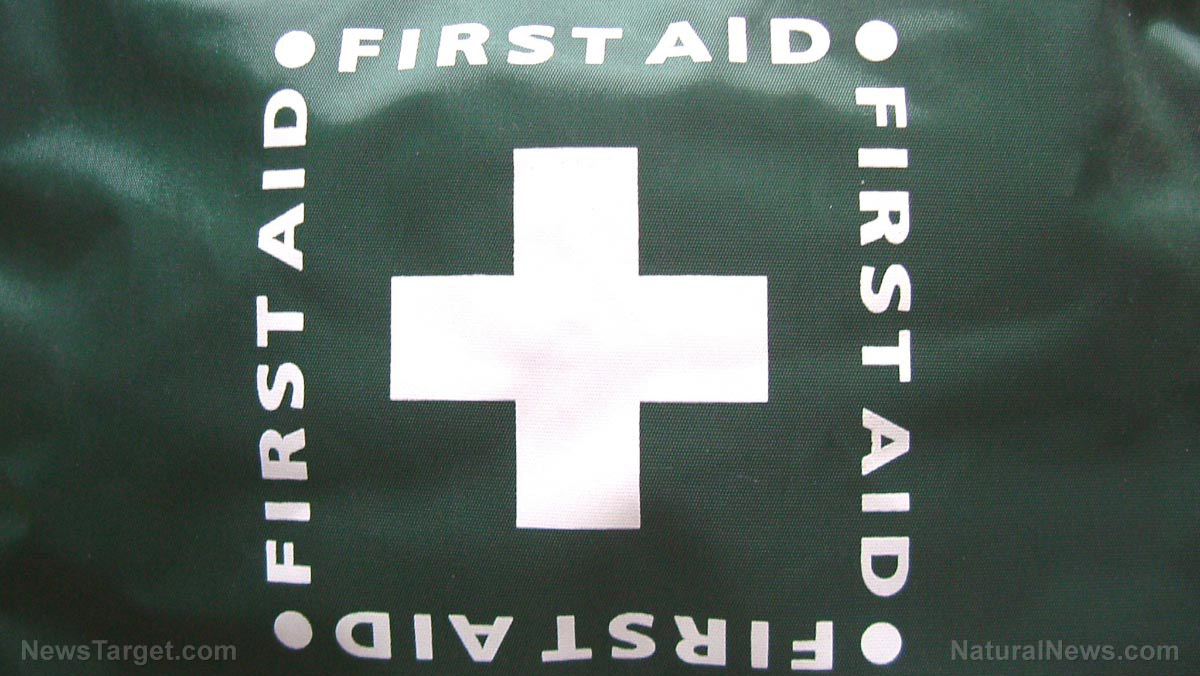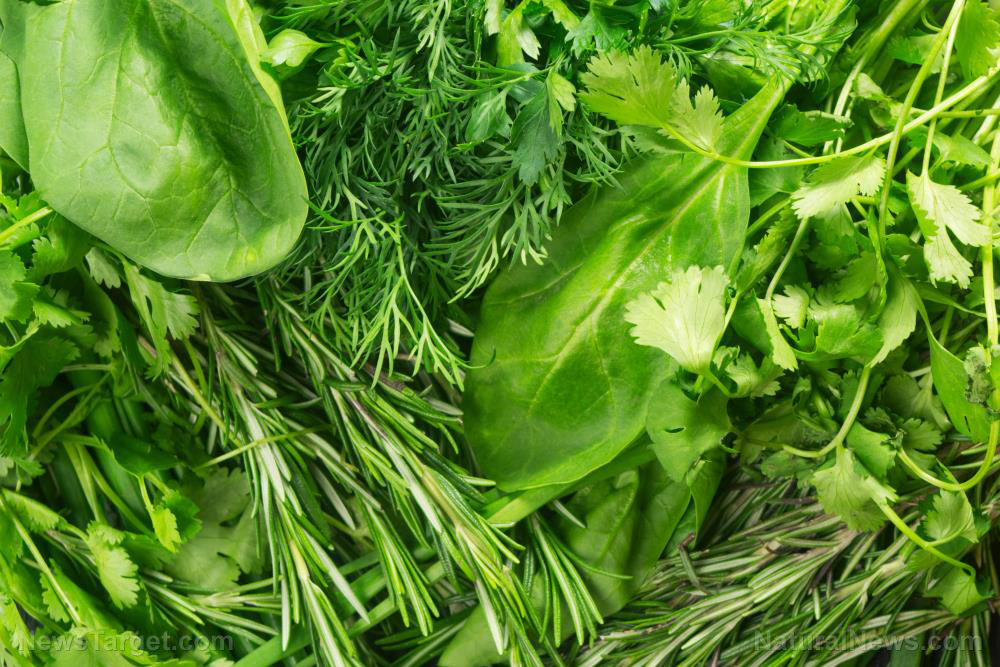Texas leaps ahead with landmark food labeling bill: A battle for health or industry overreach?
06/07/2025 / By Willow Tohi

- Texas’s Senate Bill 25 would mandate “not recommended for human consumption” labels on foods containing 44 ingredients banned in the EU, Canada, Australia or the United Kingdom.
- If signed by Governor Greg Abbott by June 22, the law would take effect in 2027 and empower the Texas Attorney General to impose fines of $50,000/day per product.
- Supported by HHS Secretary Robert F. Kennedy Jr. and bipartisan lawmakers, the bill aims to curb chronic diseases linked to additives like synthetic dyes, hydrogenated oils and bleached flour.
- Major food corporations (Kellogg, PepsiCo, Walmart) lobbied aggressively against the bill, arguing labels would create “consumer confusion” and harm businesses.
- Health advocates call it a critical step, but critics warn it lacks global oversight and may prompt nationwide industry changes.
With chronic diseases soaring — cardiac disease, diabetes, cancer — the U.S. faces a public health crisis linked to ultra-processed foods. Texas lawmakers, backed by HHS Secretary Robert F. Kennedy Jr., are spearheading a bold response. Governor Greg Abbott must decide by June 22, 2025, whether to sign Senate Bill 25 (SB25), a measure with sweeping implications for food regulation. Texas, the nation’s second-largest state, has emerged as a battleground for food policy. SB25 would require warning labels on products containing ingredients banned or restricted in other Western nations, targeting 44 substances like artificial dyes, bleached flour and seed oils. The bill’s passage could ripple across America, reshaping what’s considered “safe” to eat.
A bipartisan push for transparency and health
SB25, dubbed the “Make Texas Healthy Again” bill, marks the most significant federal-state food labeling reform in decades. Introduced by State Sen. Lois Kolkhorst (R), it aligns with Secretary Kennedy’s “Make America Healthy Again” (MAHA) movement, which argues U.S. food regulations lag behind global standards.
The bill’s provisions:
- Warning labels: Mandate a “not recommended for human consumption” disclaimer for foods with banned or restricted ingredients like artificial dyes (e.g., Red 40), partially hydrogenated oils (trans fats) and bleached flour.
- Education over banning: Instead of outright prohibitions, the law prioritizes transparency. “Texans deserve to know what’s in their food,” Kolkhorst stated, emphasizing consumer choice.
- Nutrition reform: Creates a Texas Nutrition Advisory Committee, increases school PE requirements and mandates nutrition education in universities.
Supporters frame this as a common-sense measure. “These additives have been linked to chronic diseases,” said Kendall Mackintosh of the MAHA Moms movement, noting bipartisan support (unanimous Senate approval, passage in the House). Former U.S. Surgeon General Vivek Murthy praised the bill’s focus on prevention, calling it “a blueprint for national reform.”
Industry backlash: Banning terms vs. “consumer confusion”
Big Food and retailers lobbied aggressively against SB25, warning of financial disaster. In a May 19 letter, 60 companies—including General Mills, PepsiCo and Walmart—accused the bill of “overreach,” claiming the label’s wording (“not recommended for human consumption”) would terrify shoppers.
John Hewitt of the Consumer Brands Association argued, “U.S. ingredients are vetted via rigorous science,” dismissively calling the law a “public health” play that confuses consumers. Companies also sought exemptions, successfully removing artificial sweeteners like aspartame from the banned list.
Yet consumer advocates see corporate resistance as self-serving. “These companies profit from additives proven harmful in other countries,” said Mackintosh. The bill’s loopholes add tension: labels won’t apply to existing packaging until 2027, and enforcement hinges on lawsuits, not proactive compliance.
From GMOs to dyes, a decades-long battle
Texas isn’t the first state to challenge corporate interests. In 2014, Vermont’s GMO-labeling law inspired a national backlash, only to be neutered in 2016 by a federal law favoring vague QR codes over plain labels. Critics warn SB25 could suffer the same fate if courts side with corporate interests.
Notably, the FDA’s recent moves — banning petroleum-based dyes in 2024 and phasing out artificial additives — clearly influence SB25. Still, gaps remain: the FDA has only named eight allergens for mandatory disclosure, leaving hundreds of additives unregulated under its loose GRAS (Generally Recognized as Safe) process.
Texas Attorney General Ken Paxton’s April 2025 probe into Kellogg’s claims that cereals like Froot Loops are “healthy” underscores urgent concerns. Such scrutiny may pressure the FDA to tighten its standards — or face state-level “preemption” battles, where federal laws override stricter state rules.
Health advocates’ dilemmas: A victory, but is it enough?
While hailed as a breakthrough, SB25 faces criticism. Nutritionist Gary Null noted it lacks action against sugar, salt, or saturated fats — major contributors to obesity. Historically, labels alone have mixed results: tobacco warnings reduced smoking but boosted vaping, Null said.
Others praise the bill’s innovations. “It’s a warning shot to Big Food,” said Cornell University’s Jura Liaukonyte, noting companies may preemptively adopt stricter labeling nationwide to avoid Texas-only compliance costs.
A new frontier in food policy
Texas’s decision could redefine public health advocacy. With Abbott’s pending verdict, the nation watches whether a red state will lead on issues typically framed as partisan. If enacted, SB25 could force the federal government to act — or push the MAHA movement to expand its wartime footing against ultra-processed foods.
As Sen. Kolkhorst stated, “This isn’t politics — it’s about saving lives.” Whether voters agree may hinge on whether transparency outpaces profit.
Sources for this article include:
Submit a correction >>
Tagged Under:
awakening, banned, big government, clean food watch, food labels, food science, food supply, frakenfood, grocery, ingredients, MAHA, products, progress, stop eating poison, Texas, toxins
This article may contain statements that reflect the opinion of the author





















